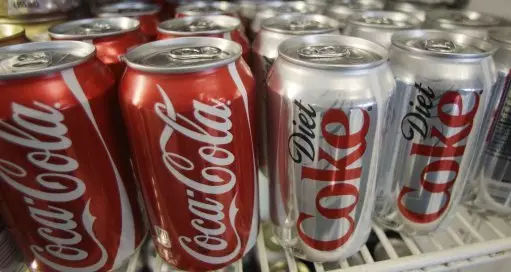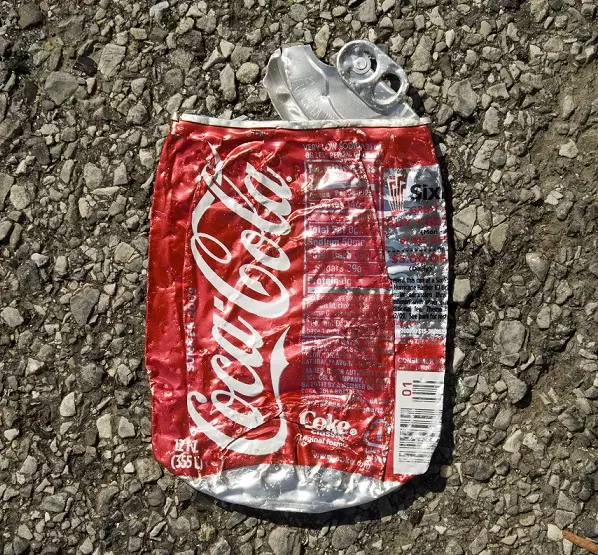
We've all experienced that sinking feeling when you drop a can of Coke or tinny of beer on the floor, knowing full well that that one moment of clumsiness has now rendered your drink entirely unopenable. Unless you like things exploding and fizzing all over you and the floor, that is, but we're guessing you don't.
But hold on a sec - all is not lost, is it? Because there's that famous old 'three tap' method. OF COURSE.
Advert
The age-old urban myth is that if you tap the ringpull a few times, it somehow makes your fizzy drink chill out a bit. Mind you, everyone who's ever done it knows full well that it's not exactly got a 100 percent success rate, but it's usually worth a shot at least.
However, while we've all being doing it since we were tiny, why is it a thing? Why does it (sometimes) work?
Let's ask science.
Specifically, let's ask , who is a lecturer in Chemistry at Nottingham Trent University - and has written a very interesting piece for The Conversation explaining the method and whether it even has any effect or not.
Advert
He explains: "Before the can is opened, microscopic gas bubbles attach to the inside of it (nucleation). When the can is opened, these bubbles increase in size, due to the decrease in the solubility of CO2.
"When these bubbles reach a certain size they detach from the inside of the can and rise up to the top of the can due to buoyancy and displace liquid in their path.
Advert
"So what part could tapping the top of the can play in this process? As described earlier, the bubbles in an unopened can nucleate at the walls, so tapping the can before opening could dislodge some of the bubbles, enabling them to float to the top of the liquid.
"When a can is opened, the bubbles expand with those deeper within the liquid travelling further than those near the surface, displacing more of the drink and possibly resulting in greater amounts of ejected liquid.
"A 'tapped' can will have fewer of these 'deep' bubbles and so less liquid will be dislodged - and possibly sprayed out - than an 'untapped' can."

All make sense? Not really? Oh. All that matters is that the next time you drop your can of Coke on the floor, you needn't necessarily despair. Before you start feeling too sorry for yourself, maybe give the ol' three tap method a go.
Advert
The worst that could happen is that you'll get covered head to toe in sugary, sticky fizzy drink.
Featured Image Credit: PATopics: Science, Interesting, Drink, Food And Drink, Community